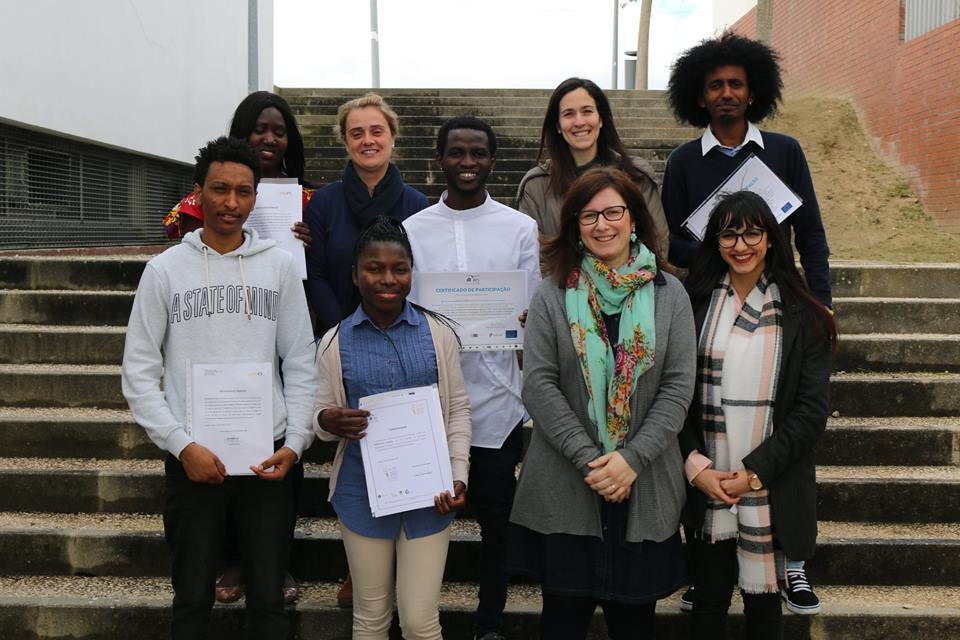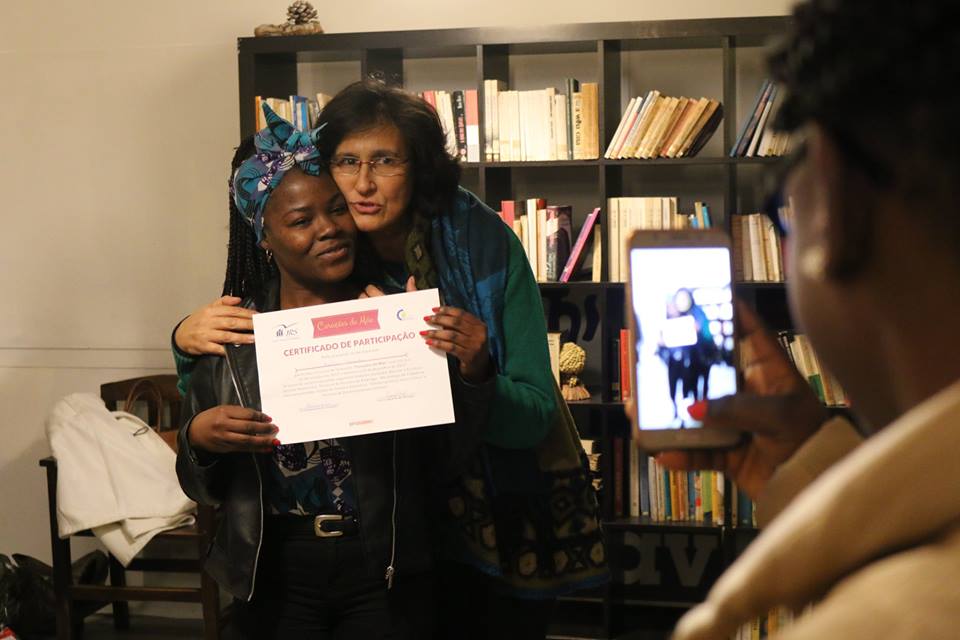The Integra+ project, implemented by the Jesuit Refugee Service of Portugal, developed training responses that promote the integration of refugees (applicants and beneficiaries of international protection) and third-country nationals, focusing on integration into the labour market in the region of Lisbon. The Integra+ project was designed based on a diagnosis of labour market needs and on the work developed by JRS-Portugal within the framework of the Refugee Support Platform.

Project Goal
Given the increasing number of refugees in Portugal and the difficulty they face in integrating into the labour market, which is an essential element for their autonomy in society, it is necessary to create actions that promote employability. When designing professional training courses, the skills of the course participants and the dynamics of the Portuguese labour market, and in this case the Lisbon labour market, also need to be considered.
Projects promoting employability are scarce and often limited to Portuguese language classes. While language learning is important for integration, it is not enough. Therefore, JRS-Portugal implemented this project to put to use its wide experience in hosting, monitoring, and integration of refugees and applicants/beneficiaries of international protection, as well as its long-standing experience in professional training projects targeting employability.
The goals of the project included the training of 30 members of the target group, achieving 80% employability, and developing Portuguese language skills in a work context.
Who benefits
The target group were migrants and refugees in situations of socioeconomic vulnerability, especially those with any of the following characteristics:
- Frequent needs in terms of food, housing, and transportation (lack of financial autonomy)
- Unemployed or searching for first regular employment in Portugal
- Low formal education levels
- Low or inadequate qualifications and/or lack of technical and professional skills to pursue a profession in Portugal
- High need for adaptation and knowledge of Portuguese culture and customs
- No social and/or family support network; signs of isolation
- Single-parent families
- Need to provide for small children
How it works
The project supported the socio-professional integration of 22 refugees and/or migrants, who were divided into two groups. The first group had 8 trainees and the second group had 14 trainees. Most of the participants came from Eritrea, Syria, Guinea-Bissau, São Tome and Principe, and Sri Lanka.
Each group received a five-month training comprised of the following actions:
- Information and awareness action
- Initiation on Portuguese language, intercultural habits, and customs (1 month)
- Training in a specific area of employment, with a practical training component in a work context (3 months). For the first group of 8 trainees, the practical training focused on career development in being a waiter/waitress or shop assistant. The second group of 14 trainees focused on shelf product placement in a retail context.
- Actions promoting employability and follow-up (1 month)
Each group carried out practical training in a work context. For the first group, JRS-Portugal and the 100 Montaditos restaurant chain formed a partnership for practical training. For the second group, JRS-Portugal formed a partnership with a supermarket chain.
Specific knowledge and skills that trainees were able to learn included the regulations and rules pertaining to hygiene and food safety at work; competences in customer service, including management of complaints, norms, and techniques of table or bar service; and preparation and service of appetizers, light snacks, and cafeteria foods.

Results
After training and assessment, 19 out of 22 trainees managed to achieve integration in the labour market. Of these 22 trainees, 9 were women and 13 were men. The remaining trainees were in the process of searching for jobs suited to their profiles.
Evaluation
An evaluation was carried out during the project’s implementation, with a focus on the following stages:
Training
Evaluation of the trainees’ satisfaction concerning the training received and evaluation of trainee performance during three different moments of the training—at the beginning of the training through an assessment test; an intermediate assessment; a final assessment on knowledge acquisition in the specific area of training. This final assessment also evaluated the trainees’ commitment, interest and posture, personal and social skills, attendance, and performance during their training.
After labour market placement
The Employment Office of JRS-Portugal conducted a post-placement evaluation.
Funding and resources
The project was funded by the Asylum, Migration and Integration fund. The project budget was €66,703. The project team included 1 coordinator, 1 Portuguese language teacher, and specialised teachers. Partnerships were developed with the 100 Montaditos restaurant group and a chain of supermarkets for traineeships.
About this good practice
- Project dates
- -
- Geographic area
- Portugal
- City
- Lisbon
- Organisation
- Jesuit Refugee Service – Portugal (JRS-Portugal)
- Contact person
- Cláudia Santos
- Position
- Coordinator of JRS Formative Academy
Details
- Posted by
